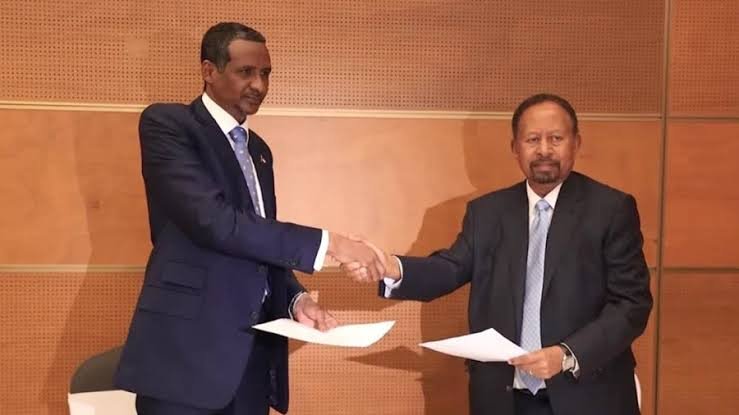Umma Party advocates neutrality, broader representation in Sudan’s anti-war coalition

The National Umma Party (NUP) has initiated a call for fundamental reforms within Sudan’s anti-war coalition, Tagadum, highlighting concerns over impartiality and the need for broader representation.
Proposing a stringent adherence to neutrality between conflicting parties, the NUP asserts that such neutrality is paramount for Tagadum to effectively mediate the ongoing conflict. In a proposal delivered to coalition leader Abdallah Hamdok on Saturday evening, the party underscored the necessity for Tagadum to serve as an unbiased mediator.
Central to the NUP’s critique is the coalition’s recent endorsement of the Addis Ababa Declaration alongside the Rapid Support Forces (RSF) in January. The NUP deems this action as straying from neutrality and deviating from the coalition’s agreed roadmap. The roadmap, previously ratified by Tagadum factions, had outlined limited engagement with the warring factions, primarily focusing on ceasefire negotiations.
Criticism towards the Addis Ababa Declaration has been widespread, with analysts and detractors alike highlighting concerns regarding its endorsement of the RSF’s narrative regarding the conflict’s origins, thus jeopardizing Tagadum’s neutrality. Moreover, the inclusion of post-war political matters within the declaration has been contested, with critics arguing that such issues belong solely to the civilian political domain.
The NUP has issued a two-week ultimatum for Tagadum to respond to its proposed reforms, which advocate for the convening of a comprehensive roundtable conference encompassing Sudan’s entire military and political spectrum. Notably, the proposal prioritizes inclusivity and the representation of political entities, stressing the need to overcome past grievances and accommodate diverse viewpoints.
Of particular contention is the current distribution of power within the coalition, with the NUP expressing reservations about the prominent role afforded to civil society groups, professionals, unions, and resistance committees. These entities currently hold a disproportionate 70% of the representation, compared to only 30% allocated to political parties and armed movements.
The NUP further emphasizes the necessity for distinct recognition of political parties and movements within the Tagadum structure, arguing that conflating the two overlooks crucial distinctions in their respective methods and objectives. Additionally, the party advocates for increased female representation within the coalition and calls for a credible international investigation into foreign involvement in the conflict.
Originally slated for a founding conference in December, Tagadum has repeatedly postponed the event in pursuit of consensus with entities such as the SPLM-N led by Abdelaziz Al-Hilu and other pertinent parties and armed groups. These efforts underscore the complex challenges inherent in fostering unity and inclusivity within Sudan’s anti-war coalition.



